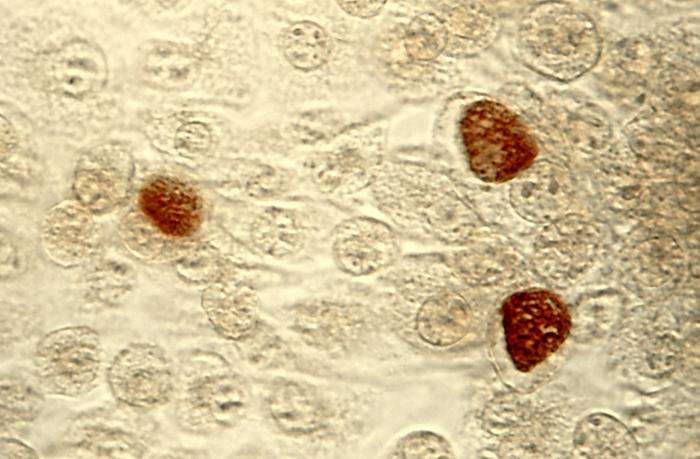Certain vaginal bacteria may be linked with increased risk of chlamydia

The presence of specific types of vaginal bacteria may be associated with an increased risk for chlamydia infection, finds a small, but well powered study published online in Sexually Transmitted Infections.
Chlamydia trachomatis is the most common sexually transmitted infection (STI) in industrialised countries. It usually causes no symptoms, but can increase the risk of HIV infection and lead to long-term complications in women such as pelvic inflammatory disease, ectopic pregnancy and infertility.
A range of microbes (microbiota) found naturally in the vagina are thought to help protect against infections, but their exact role remains uncertain.
Previous studies have shown that the vaginal microbiota of women infected with chlamydia was depleted of Lactobacillus species (a group of bacteria that live harmlessly in the urinary, digestive and genital tracts).
So a team of researchers set out to compare the composition and structure of vaginal microbiota prior to chlamydia infection in women who subsequently acquired the infection and in women who did not.
The study involved 122 healthy women aged between 16 and 29 years old attending a STI outpatient clinic in The Netherlands. Vaginal swab samples were collected at their first visit when all women were still free of infection. These swabs were used to unravel the structure and composition of the vaginal microbiota. One year later, these women got tested for chlamydia again, 61 tested positive.
Sociodemographic information and sexual risk behaviour was recorded and cases were matched to controls according to age and ethnicity.
The researchers found that having a microbiota dominated by a particular strain of Lactobacillus (Lactobacillus iners) was associated with an increased risk for chlamydia infection.
They point out that this is an observational study, so no firm conclusions can be drawn about cause and effect, and they outline some limitations that may have introduced bias.
The exact mechanism behind this still needs to be unravelled, they say. Nevertheless, they suggest that "specific signatures of vaginal microbiota could be indicative of increased host predisposition to acquiring STIs."
And they add that "specific species or possibly even strain of Lactobacillus is of great importance to determine whether the vaginal microbiota can contribute to susceptibility to or protection against STIs."
More information: Lactobacillus iners-dominated vaginal microbiota is associated with increased susceptibility to Chlamydia trachomatis infection in Dutch women: a case- control study , Sexually Transmitted Infections (2017). sti.bmj.com/lookup/doi/10.1136 … sextrans-2017-053133

















